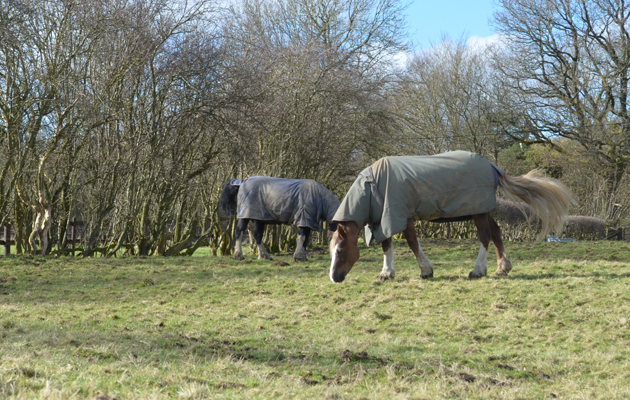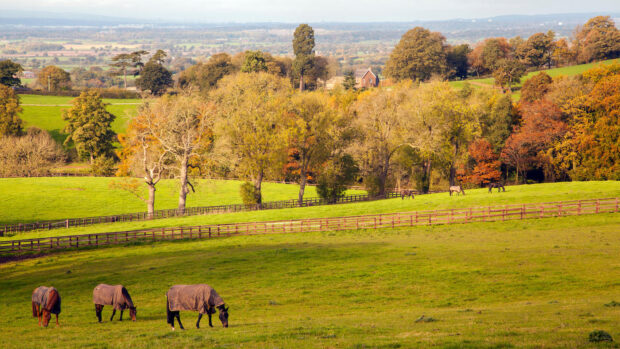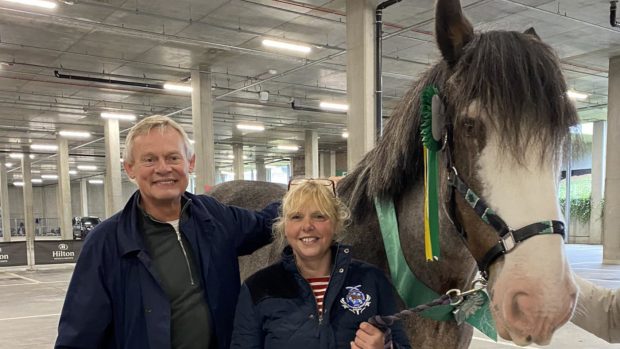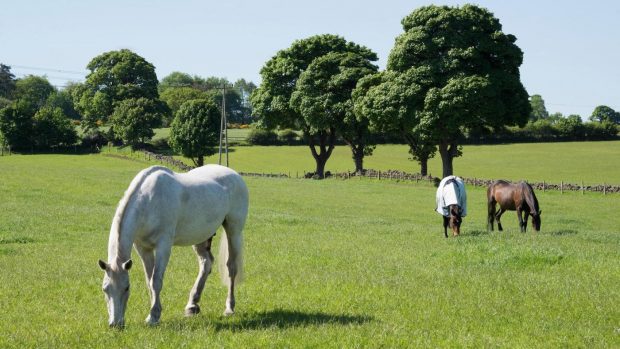A rider is urging other horse owners to be aware of the signs of equine grass sickness after her horse survived the often-fatal condition.
Mandy Halliday from Beccles, Suffolk, told H&H that her horse Thor, a seven-year-old Appaloosa, is still recovering 12 weeks later (not pictured).
“He’s a bit brighter and he’s gaining weight,” she added.
However, Ms Halliday wants more people to know about EGS.
“Like many people I’d heard of it, but I didn’t really know much about it,” she said.
| Related articles |
“I’d like other owners to be more aware of the signs so they can catch it and hopefully their horses will survive too.”
She told H&H that she had come home from work earlier this year to find Thor “a bit off colour”.
“He wasn’t himself,” she said. “The next day he was more sombre and laying down. The vet came and diagnosed him with EGS”.
Thor then spent nine days in intensive care at Rossdales in Newmarket.
“It was so hard to see, and he was very depressed,” she added.
Ms Halliday has owned Thor since last August. The other animal on the land, a miniature pony, was unaffected.
There is relatively little known about the condition, however, it is most prevalent in April until September.
Earlier this year H&H reported a rise in the number of cases of EGS.
Vets believe EGS is caused by a toxin produced by clostridia bacteria, the same bacteria that, in different circumstances, can cause botulism. They affect the nervous system.
To try to avoid the condition owners are warned not to change field management or diet during the high-risk time.
Feeding haylage or hay at pasture, or bringing horses into a stable at night may reduce its occurrence as it cuts down on grazing exposure.
There are three types of the condition: acute (sudden on-set with colic-like signs), sub-acute (similar but less severe), and chronic (which accounts for around one-third of cases).
Signs include:
- Abdominal pain
- Poor appetite
- Patchy sweating
- Increased heart rate
- Increased saliva, dribbling
- Depression
The Animal Health Trust is currently putting out a final plea for owners whose horses have suffered EGS to come forward for a vaccine trial.
Owners who keep horses or ponies on premises that has had a case of EGS in the previous three years should register to take part in the trial by the end of August.
For more information visit: www.grasssickness.org.uk





